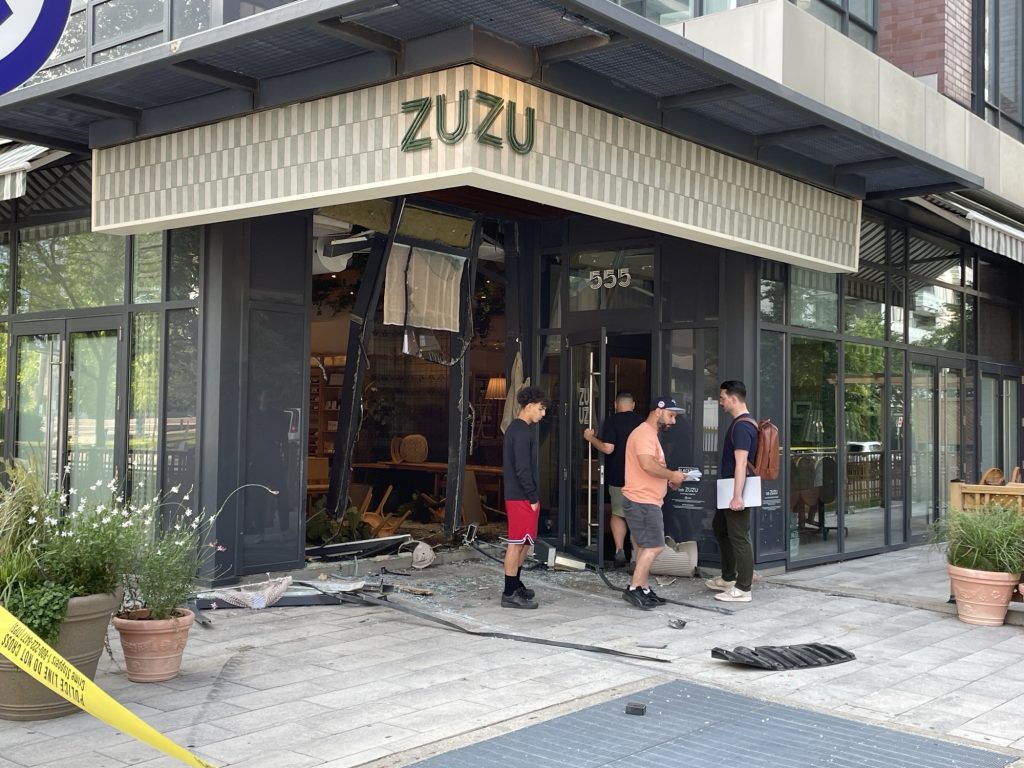Ricki’s and Cleo to close stores while Frank and Oak seeks creditor protection

Posted January 8, 2025 12:13 pm.
Last Updated January 8, 2025 9:41 pm.
The new year is off to a rough start for Canada’s retail industry, with two companies seeking creditor protection and closing stores while they consider how to move forward.
Comark Holdings Inc., which owns apparel brands Ricki’s, Cleo and Bootlegger, and UCG Canada Holdings Inc., which operates as clothing brand Frank and Oak, both made court applications in recent weeks designed to give them reprieve from creditors and the space to consider the future of their businesses.
Comark’s filing under the Companies’ Creditors Arrangement Act was paired with a decision to shutter all of its Ricki’s and Cleo locations, which sell women’s apparel that is often suited for office environments.
Court documents show the company operates 75 Ricki’s stores, 54 Cleo stores, 20 joint locations and about 19 sites the brands split with Bootlegger, which has 53 stand-alone shops.
The company, which court filings say has 2,056 employees in Canada, said it would seek a future court order to liquidate some of the Bootlegger stores. Its lawyers did not respond to a request for comment.
In court filings, Comark describes how it ran into trouble as it tried to cope with the COVID-19 pandemic, a November 2021 ransomware attack, more competition from ultra-low-cost fashion retailers like Shein and Temu, and supply chain and vendor issues.
“Notwithstanding their best efforts to reduce expenses, preserve capital and improve profitability, the applicants’ liquidity position continues to rapidly deteriorate, particularly during the traditionally slower post-Christmas retail season,” chief executive Shamsh Kassam said in an affidavit.
He estimated that by the time Christmas arrived, Comark’s brands owed $61 million to a mix of vendors, landlords and other partners who the company would be unable to pay.
“Certain vendors have stopped shipping new merchandise and have stated that they are not willing to commence production for summer and fall product merchandise,” Kassam said.
“Certain other vendors have issued statements of claim in recent weeks against the applicants in Ontario and Manitoba seeking payment of outstanding amounts and damages.”
The situation Comark finds itself in was no surprise to Liza Amlani, co-founder of the Retail Strategy Group.
“When you visit their stores, it feels like we have taken a step back in time,” she said in an email.
“An abundance of excess inventory sits on rails in the stores at the end of each season. They are inundated with inventory and deep markdowns, which tells me they don’t know what their customer wants.”
Her perception of Frank and Oak was similar after visiting two of the brand’s stores recently.
“The assortment was dull and boring,” she said. “The sales associates didn’t have sales training and lacked customer service skills. Meaning, I was greeted and told about the sale but that was it.”
Frank and Oak, which has 15 stores in Canada, has been seeking creditor protection while it explores options to restructure its business.
“The primary goal is to preserve the business, safeguard jobs and explore potential solutions, including attracting an investor or identifying a buyer for the brand,” the Montreal-based company said in a press release.
Court filings show the retailer owes about $71 million to creditors, which include textile businesses, landlords and utility companies.
Frank and Oak’s chief executive Dustin Jones positioned the debt as a result of the company failing to recoup losses experienced during the aftermath of the COVID-19 pandemic.
“Be sure that we will work diligently on our restructuring plan to ensure our success with the goal of continuing our business relationship with you,” a note he sent to creditors said.
Frank and Oak’s and Comark’s filings come days after Toys “R” Us Canada said it was shuttering five Ontario stores and making room at others for play spaces and an expansion of the HMV brand.
The Body Shop Canada has also said it will close locations as it charts a sale to an affiliate of Markham, Ont.-based Serruya Private Equity Inc.
Yet Amlani doesn’t see the confluence of closures and court filings as a sign that the retail industry is in for a difficult year.
“(Consumers) are just being more cautious and intentional on what they are buying,” she said.
“With more options than ever, the customer has so many more choices online and offline than ever before.”
Indigo confirmed Wednesday it’s closing one store in Calgary. A spokesperson said the company is in “growth mode,” and is looking to add new stores in some areas and “right-size in others.”








